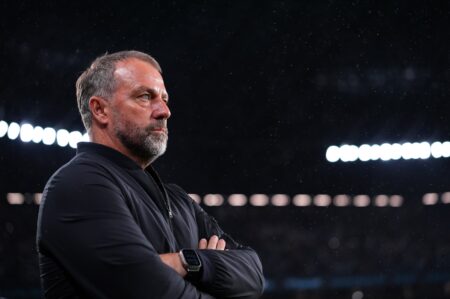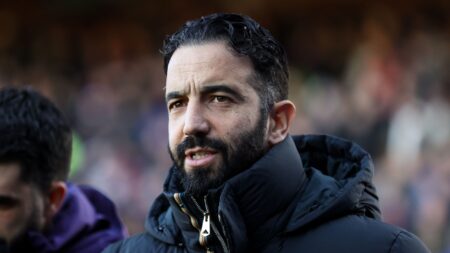Ruben Amorim’s Reflection on Manchester United’s Struggles
Ruben Amorim, the 40-year-old Portuguese manager, has taken the reins at Manchester United during one of the club’s most tumultuous periods. Despite his efforts, the team has struggled to regain its former glory, with just ten wins out of 25 games since his appointment. Amorim recently shared his thoughts on the deep-seated issues plaguing the club, emphasizing the psychological toll it has taken on the players. "To tell you the truth, I feel sometimes there are scars in our team, in our players," he confided to Sky Sports. These scars, he believes, are a result of the continuous cycle of new managers and expectations, which have left the players feeling disheartened and fatigued. The pressure from the media and social media has only exacerbated the problem, making it extremely challenging to turn things around quickly.
The Impact of Repeated Disappointments
United’s current campaign has been a nightmare, with the team marooned in the bottom half of the Premier League table. They have managed just six victories and suffered eight defeats in 18 top-flight matches under Amorim’s watch. The manager acknowledges the depth of the issues, explaining, "They are good players, but they (scars) are so deep, they are so long here that it is hard to change things in one moment." The repeated cycle of new coaches, new hopes, and subsequent disappointments has taken a significant toll on the players’ morale. "Imagine this for any person, in any job. Imagine this as a player, with all the media and social media. So it’s really hard to turn things around just like that," Amorim reflected. The pressure to perform at one of the world’s most prestigious clubs has left the players feeling the weight of expectations and the scrutiny of the public eye.
The Complexity of Leadership at Manchester United
Amorim’s journey as a manager has not been without its challenges. He openly admits to making mistakes, particularly in his initial handling of relationships with staff outside the dressing room. "When you are a player, you just focus on you, but when you are a manager, you have to focus on a lot of people, not just the players but all the staff," he said. The manager’s role extends far beyond the pitch, encompassing a wide range of responsibilities, from strategic planning to interpersonal dynamics. Amorim recognizes that he did not initially pay enough attention to these broader aspects, which affected the team’s cohesion and performance. "All the staff are paying attention to you, so you have to pay attention to that, and that is something that I didn’t do very well in the beginning here in Manchester because I was focused on the games," he acknowledged.
Building Connections and Trust
Despite the setbacks, Amorim is making concerted efforts to build better connections and trust within the club. He understands that the path to recovery involves not just tactical adjustments but also fostering a supportive and cohesive environment. "At the moment I am starting to get a really good connection with all the staff and the players," he shared. This shift in approach is crucial for a manager looking to lead a team through difficult times. By recognizing the importance of relationships and communication, Amorim is laying the groundwork for a more resilient and united team. The manager’s ability to self-reflect and adapt is a positive sign for the future, as it demonstrates his commitment to addressing the underlying issues that have plagued the club.
The Road Ahead
As Manchester United prepare to face Arsenal in a crucial home clash, the stakes are high. The team’s performance in this match could be a pivotal moment in their season, offering a chance to rebuild confidence and momentum. Amorim is acutely aware of the challenges ahead but remains determined to guide the team through their current difficulties. "We need to stay focused and work hard to turn things around," he stressed. The manager’s honesty and willingness to confront the club’s issues head-on are commendable, and they suggest that he is committed to the long-term success of Manchester United. While the road to recovery may be long and arduous, the team’s ability to overcome their scars and find a way forward will be critical to their future success.
A Promise of Better Days
Despite the current setbacks, there is a glimmer of hope for Manchester United under Amorim’s leadership. His recognition of the psychological and emotional challenges facing the players, along with his efforts to build stronger connections with the staff, shows a deep understanding of what is needed to revitalize the club. The road ahead is undoubtedly challenging, but with a manager who is willing to learn, adapt, and lead with empathy, there is a possibility that Manchester United can overcome their struggles and return to the top of the Premier League. The journey may be difficult, but the signs of improvement and the manager’s commitment offer a promise of better days to come for the Red Devils.











